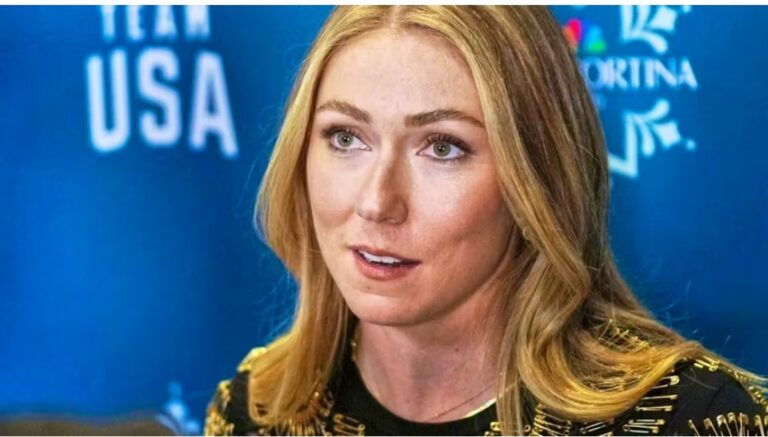As the 2025-26 alpine skiing season approaches, Mikaela Shiffrin, the American skiing icon with 101 World Cup victories, finds herself wrestling with uncertainties despite a remarkable recovery from injury. Her cautious outlook could open the door for Switzerland’s Lara Gut-Behrami to seize the overall World Cup title in what may be her final season before retirement.
Shiffrin, now 30, suffered a severe abdominal injury in a giant slalom crash in Killington last November, requiring multiple surgeries. Yet, she defied the odds by securing two World Cup wins last spring, bringing her career total to a record-breaking 101. Despite a productive summer of training and leisure, Shiffrin expressed reservations about her form at a recent media event hosted by her sponsor, Atomic. “I’m not necessarily going into the season with the feeling that I’m one of the fastest athletes,” she admitted, just days before the season opener in Sölden. She cited uncertainties, particularly in disciplines beyond her dominant slalom, and described the overall World Cup title as a distant goal, emphasizing the need to improve with each race.
Shiffrin’s struggles in giant slalom, her second-strongest discipline, have been notable since her comeback. Her results have been inconsistent, with eliminations and missed qualifications, dropping her to 31st in the World Cup Start List (WCSL) for the event. She also revealed the psychological toll of her injuries, including post-traumatic stress disorder, which has impacted her confidence. To mitigate risks, Shiffrin has opted out of downhill races this season and will test her readiness in super-G at St. Moritz in December before deciding on further speed events. This cautious approach, shaped by the serious crash of her fiancé, Aleksander Kilde, in Wengen, reflects her priority on safety.
This scenario presents a golden opportunity for Lara Gut-Behrami, the 34-year-old Swiss star who won the overall World Cup in 2016 and 2024. As she prepares for her farewell season, Gut-Behrami holds a strong position, ranking first in super-G, fifth in downhill, and sixth in giant slalom from the previous season. Her ability to compete across three disciplines gives her an edge over Shiffrin, who excelled only in slalom last season. With last year’s overall champion, Federica Brignone, sidelined until just before the 2026 Olympics, and top contender Petra Vlhova absent, Gut-Behrami’s main competition may come from Italy’s Sofia Goggia. Emerging talents like Zrinka Ljutic, Lara Colturi, and Camille Rast are not yet poised to challenge for the overall title.
Shiffrin also reflected on her Olympic prospects, noting her modest record of three medals (two golds, one silver) across 11 races in three Olympic appearances—a stark contrast to her over 50% podium rate in World Cup events. With the 2026 Milano Cortina Games approaching, she speculated that they might be her last, though she left open the possibility of competing in the 2030 French Alps Olympics. “I don’t know if it will be my last Olympic Games. I think so,” the Colorado native, who turns 31 in March, said. “But you never know.”
As Shiffrin navigates her uncertainties, Gut-Behrami stands ready to capitalize. If the Swiss veteran maintains her health and focus, she could cap her storied career with a third overall World Cup title, while Shiffrin aims to rediscover her form on the slopes she knows best.
